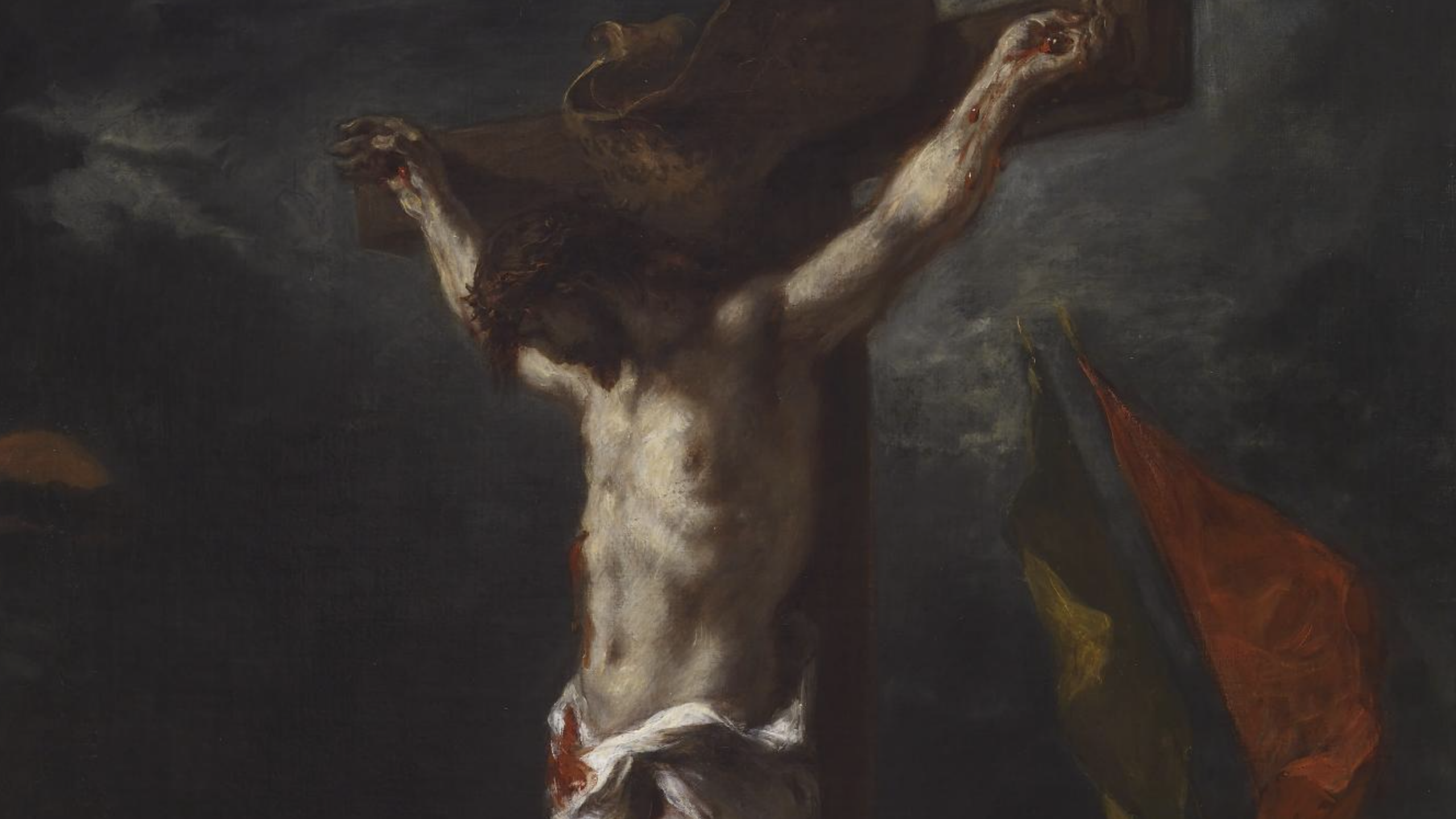Moments before his death, we hear Jesus call out from the cross, “I thirst.” As many people wiser and holier than I have pointed out, this thirst is not merely one out of bodily necessity but a spiritual one. Jesus thirsts for us.
If this is true and Jesus does truly thirst for us, then in some way, we have the power to satiate his thirst and, in turn, provide him some comfort in his darkest hour. While it can be overwhelming at times to consider Jesus’ suffering in light of our responsibility for it, it ought to give us hope that we have the potential to ease his pain. All of this is written in the present tense for a reason. Through the very lives we live today, we are capable of consoling Jesus as he hangs upon the cross. As Fr. Michael Gaitley, MIC, notes in his do-it-yourself retreat, Consoling the Heart of Jesus, we are capable of “retroactively” consoling Jesus. He derives this logic from Pope Pius XI’s encyclical, Miserentissimus Redemptor, in which the Pope considers Jesus’ agony in the garden. The Pope points out that while Jesus foresaw all our sins and became sorrowful, he also would have foreseen our reparation and love and found solace.
Considering how we may go about consoling Jesus, we can draw on wisdom from the psalm referenced by Pope Pius XI in this encyclical, “My Heart and I looked for one that would grieve together with me, but there was none: and for one that would comfort me, and I found none” (Psalm 69:21).
Our active participation today impacts Jesus’ journey to the cross . . .
Jesus pours himself out upon the cross for all of humanity while a mostly hostile crowd celebrates his demise. While his body surely ached from the physical wounds, I imagine his heart ached even more when he looked out to the crowd and saw that most of his closest friends and followers had deserted him. We often consider the physical suffering of Jesus, but contemplating his emotional suffering adds another layer to his Passion. It becomes even more troubling when considered in light of a recent study that concluded that the brain interprets emotional pain the same way that it does physical pain. Using the logic of this study, we find a pathway to ease the overwhelming pains, both emotional and physical, that Jesus experiences: alleviating his loneliness. However, this is not about just being within a certain proximity of him. As we covered earlier, there were plenty of people with Jesus at Golgatha, and he remained lonely. To relieve his loneliness, and therefore ease his suffering and pain, we must go beyond being near Jesus. We must tend to him.
As backward as it may seem, seeing that Jesus appears to be the one doing the tending as he lays down his life for us on the cross, we too can minister and care for him. This is the call of all those desiring to lessen his pain. While this may look different to each of us, since Jesus will have a particular way he wants each of us to tend to him, we can begin to uncover what he is asking of us.
Start by quieting your heart, removing all distractions, and approaching the foot of the cross as Jesus hangs there. From there, it is as simple as gazing into his eyes and asking him a question:
“Jesus, how can I tend to you?”
While I may not know how Jesus answers this question for each of you, I am certain of one thing: Jesus is consoled by your asking alone. To sincerely ask this question, a few things must be true. You must first be near Jesus so that he can hear you. Then you must recognize the reality of the gift of his mercy and feel the guilt for having denied him before. Finally, moved by love, you must ask him how you can give of yourself to him and bring him joy.
This Holy Week, the Church invites us to intimately participate in the life, death, and resurrection of Jesus. As he walks the streets of Jerusalem, lays in agony on the garden ground, and hangs upon the cross, we are called to be active participants. While these events happened some two thousand years ago, our active participation today impacts Jesus’ journey to the cross as we offer him our reparation and love in each of these moments.
Yet, the Lord has a particular way in which he calls each of us to love and console him. For some of us, it may take on the form of additional penances, for others, it may be forgiving someone we’ve quarreled with. And as we quench the thirst of Jesus by loving him how he intends us to, rather than how we’d like to, we discover that we too have had our thirst quenched in return. We are to offer our hearts as libations to Jesus on the cross so that he may find solace and be satiated by our love. A cup with the contents of a heart like this surely quenches the thirst of Jesus. In turn, our hearts are filled by his love and mercy poured out upon us.
